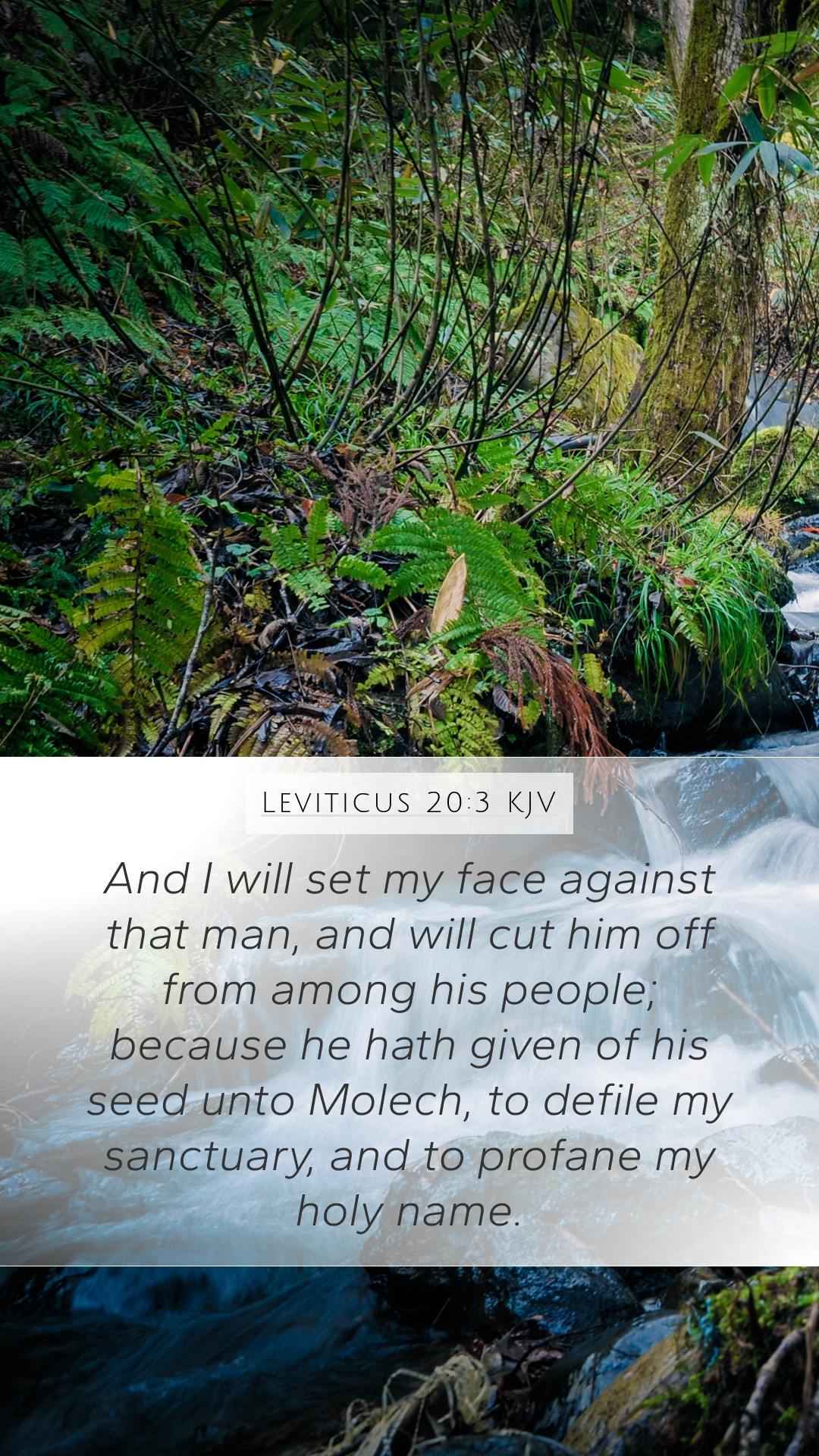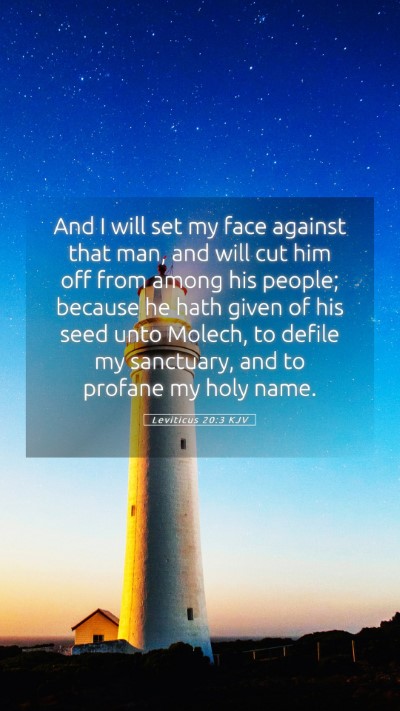Understanding Leviticus 20:3
Leviticus 20:3 states: "And I will set my face against that man, and will cut him off from among his people; because he hath given of his seed unto Moloch, to defile my sanctuary, and to profane my holy name."
This verse delivers a powerful message regarding the seriousness of idolatry and the worship of foreign deities, particularly Moloch, who was associated with child sacrifice. The implications of such actions are grave in the eyes of God, resulting in severe consequences for those who defile His commandments and sanctuaries.
Bible Verse Meanings and Interpretations
The insights from various public domain commentaries provide a multifaceted understanding of this verse:
-
Matthew Henry's Commentary:
Henry emphasizes the strictness of God's laws, illustrating that He demands complete obedience from His people. The act of giving one's children to Moloch is seen as a violation of the covenant relationship with God. He also focuses on God's justice and the importance of maintaining purity within the community, underscoring the notion that such sins have communal as well as individual consequences.
-
Albert Barnes' Notes:
Barnes highlights the cultural and historical context of child sacrifice practiced by the Canaanites. He argues that those engaging in such abhorrent practices cut themselves off from the community of God's chosen people. The warnings in Leviticus serve as a means to prevent the detrimental influences of pagan worship and to preserve the sanctity of worship spaces.
-
Adam Clarke's Commentary:
Clarke delves into the gravity of the pronouncement "I will set my face against that man," which connotes God's active opposition to the individual. He notes the severity of the repercussions of such sinful behavior, which not only impacts the sinner but also the entire nation. Clarke also discusses the historical implications of Moloch worship and its stark contrast to the requirements of God’s law.
Significance of Leviticus 20:3
This verse is a clear warning against idolatry and serves as a call for holiness. In understanding Scripture, we see that God desires His people to separate themselves from practices that do not honor Him. The severe language reflects the seriousness with which God treats His commandments and the holiness of His name.
Bible Study Insights
When engaging in Bible study, this verse invites reflection on the relevance of God's laws today and how they can be applied in daily life. It prompts believers to examine potential idols in their lives that might compete with their devotion to God.
Cross References
- Deuteronomy 12:31 - God's prohibition against child sacrifice
- Jeremiah 32:35 - God's rebuke of child sacrifice practices
- Ezekiel 20:26 - The consequences of idolatry
- Romans 12:1 - Call to present oneself as a living sacrifice to God
- 1 Corinthians 10:21 - The impossibility of serving both God and idols
Applying Bible Verses to Daily Life
Leviticus 20:3 can encourage believers to be vigilant against modern forms of idolatry, urging them to prioritize their relationship with God above all else. In studying and interpreting this verse, one learns that fidelity to God is paramount, and the pursuit of holiness is essential for a thriving spiritual life.
Conclusion
The study of Leviticus 20:3 leads to profound insights into God's expectations for His people. Through careful analysis and commentary, we gain a deeper understanding of the consequences of disobedience and the importance of upholding God's commandments.


